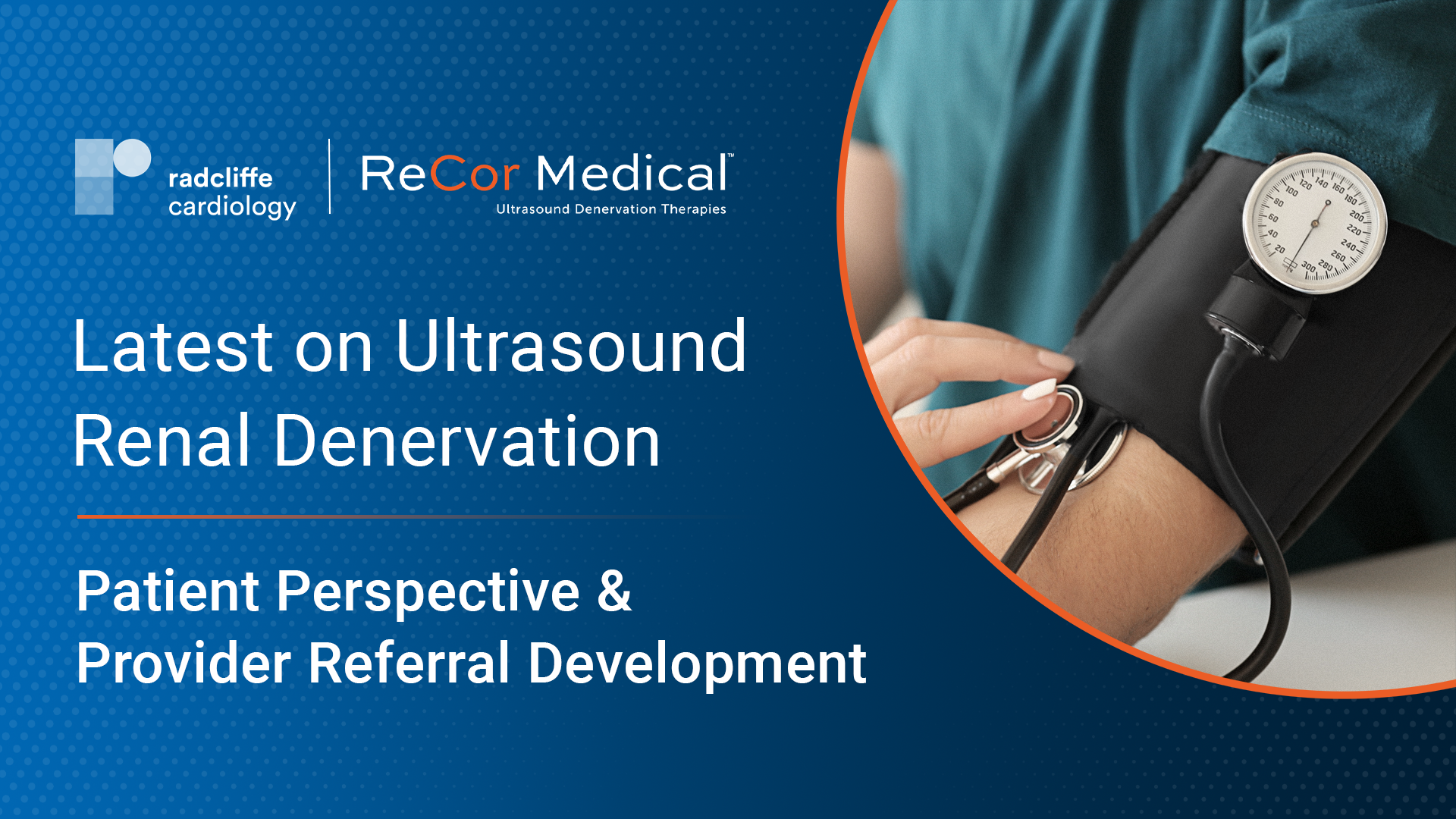Latest on Ultrasound Renal Denervation
Published: 22 June 2022
-
Views:
 7850
7850
-
Likes:
 7
7
-
Views:
 7850
7850
-
Likes:
 7
7
-
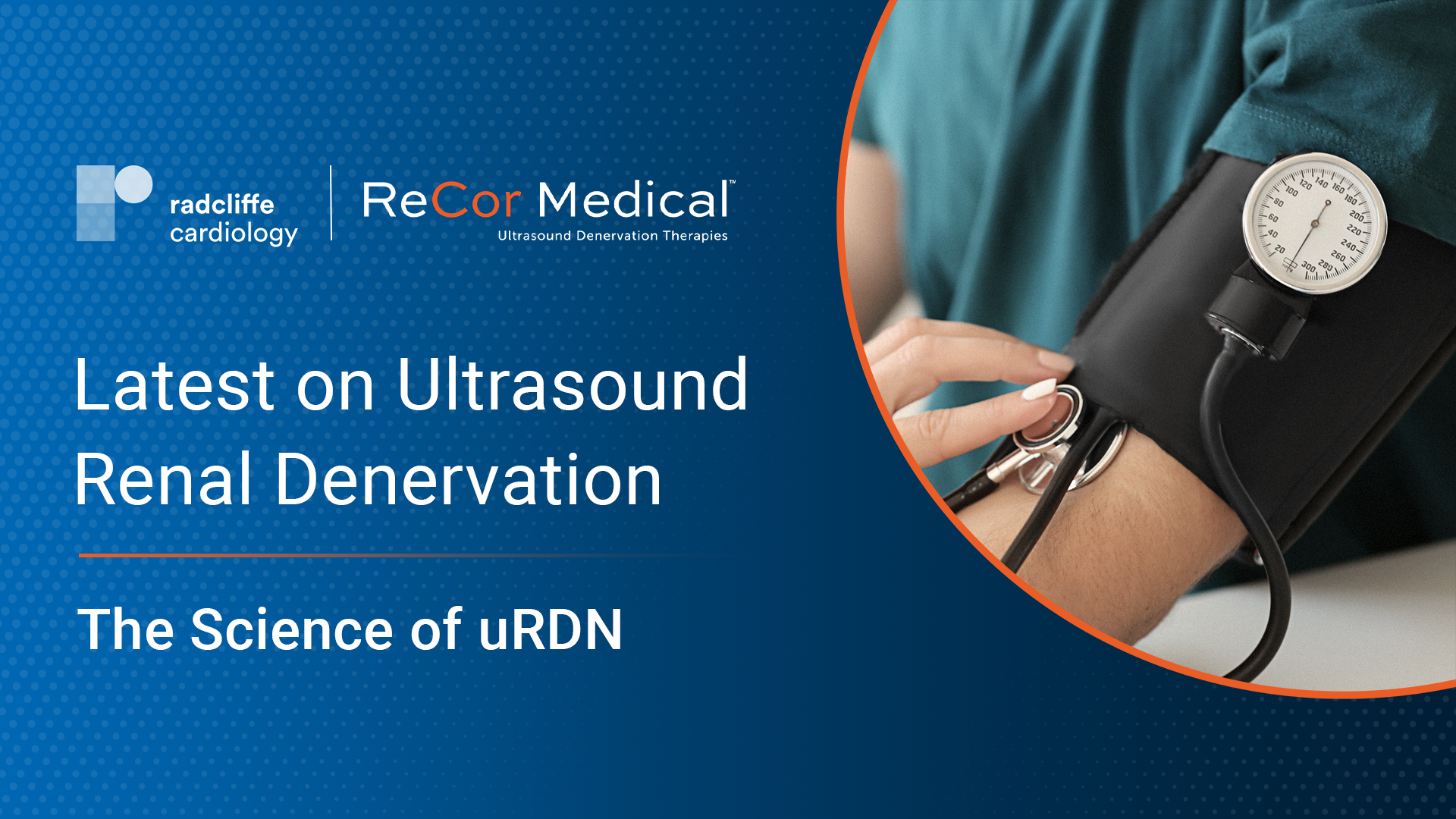 Up Next
Up Next -
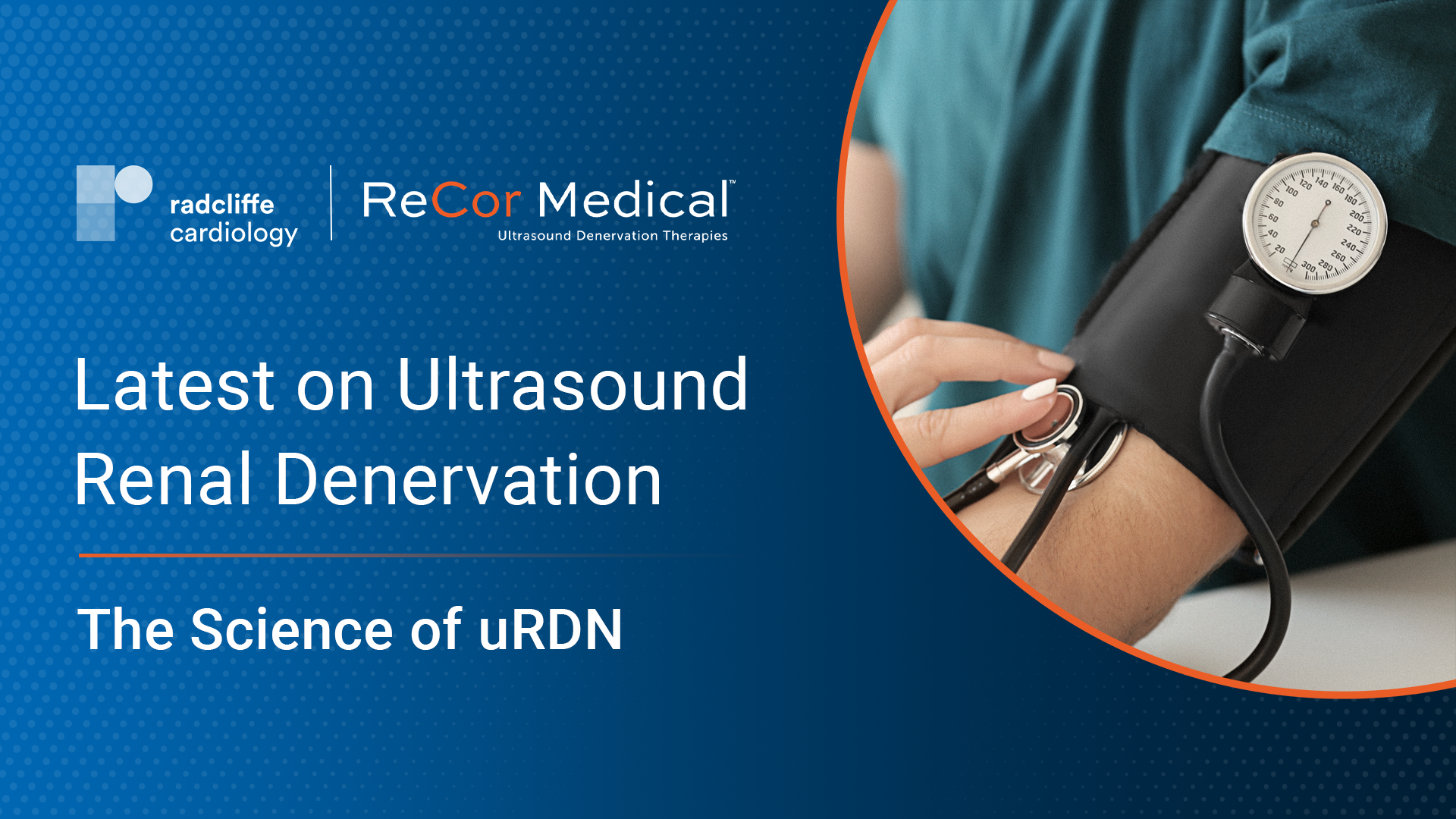 9m 18sPart 1 | Session 2 Ultrasound Technology – Its Development and Unique Characteristics: Andy Wu
9m 18sPart 1 | Session 2 Ultrasound Technology – Its Development and Unique Characteristics: Andy Wu -
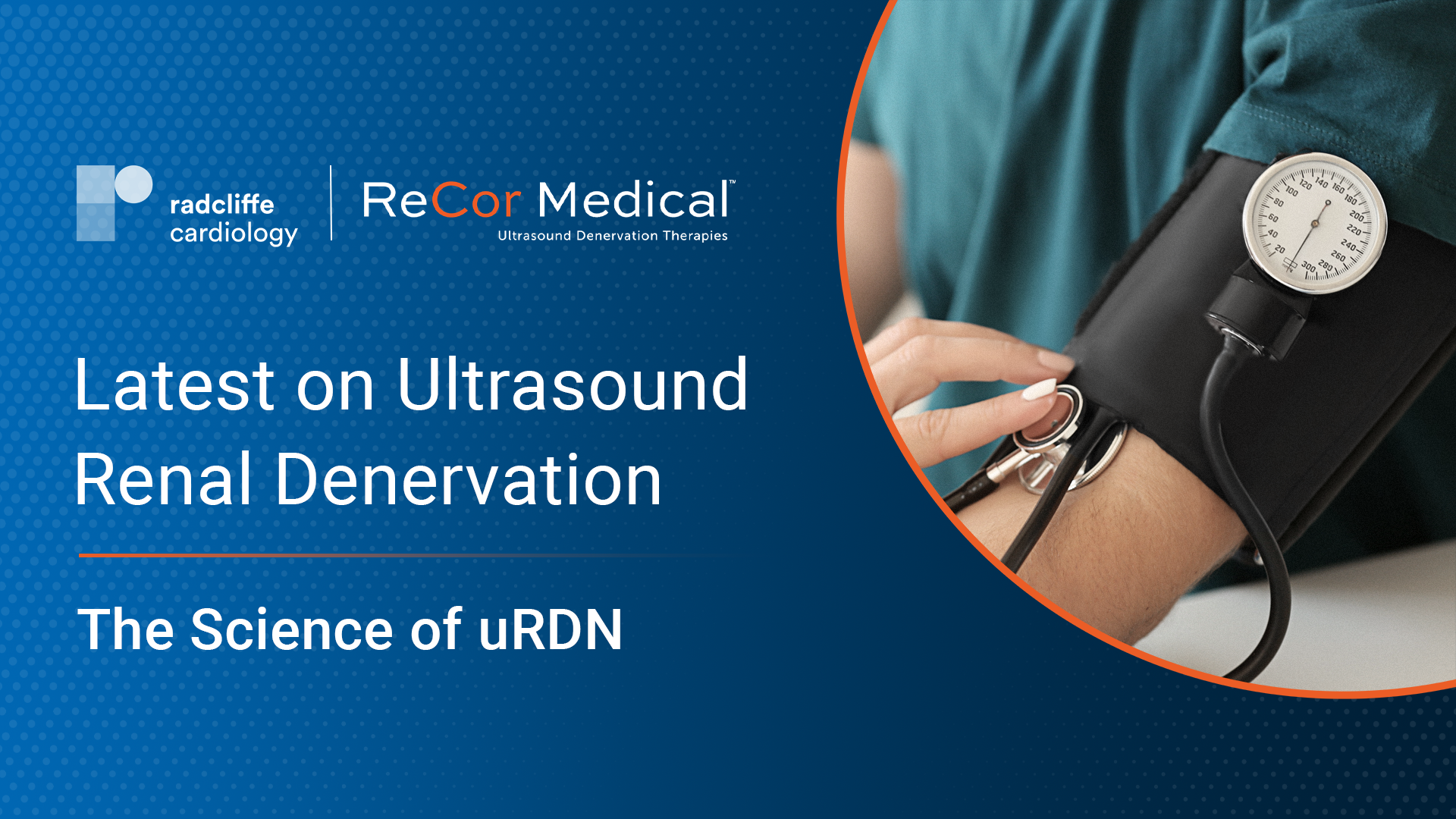 15m 10sPart 1 | Session 3 Ultrasound Renal Denervation Preclinical Evidence: Dr Michael Joner
15m 10sPart 1 | Session 3 Ultrasound Renal Denervation Preclinical Evidence: Dr Michael Joner -
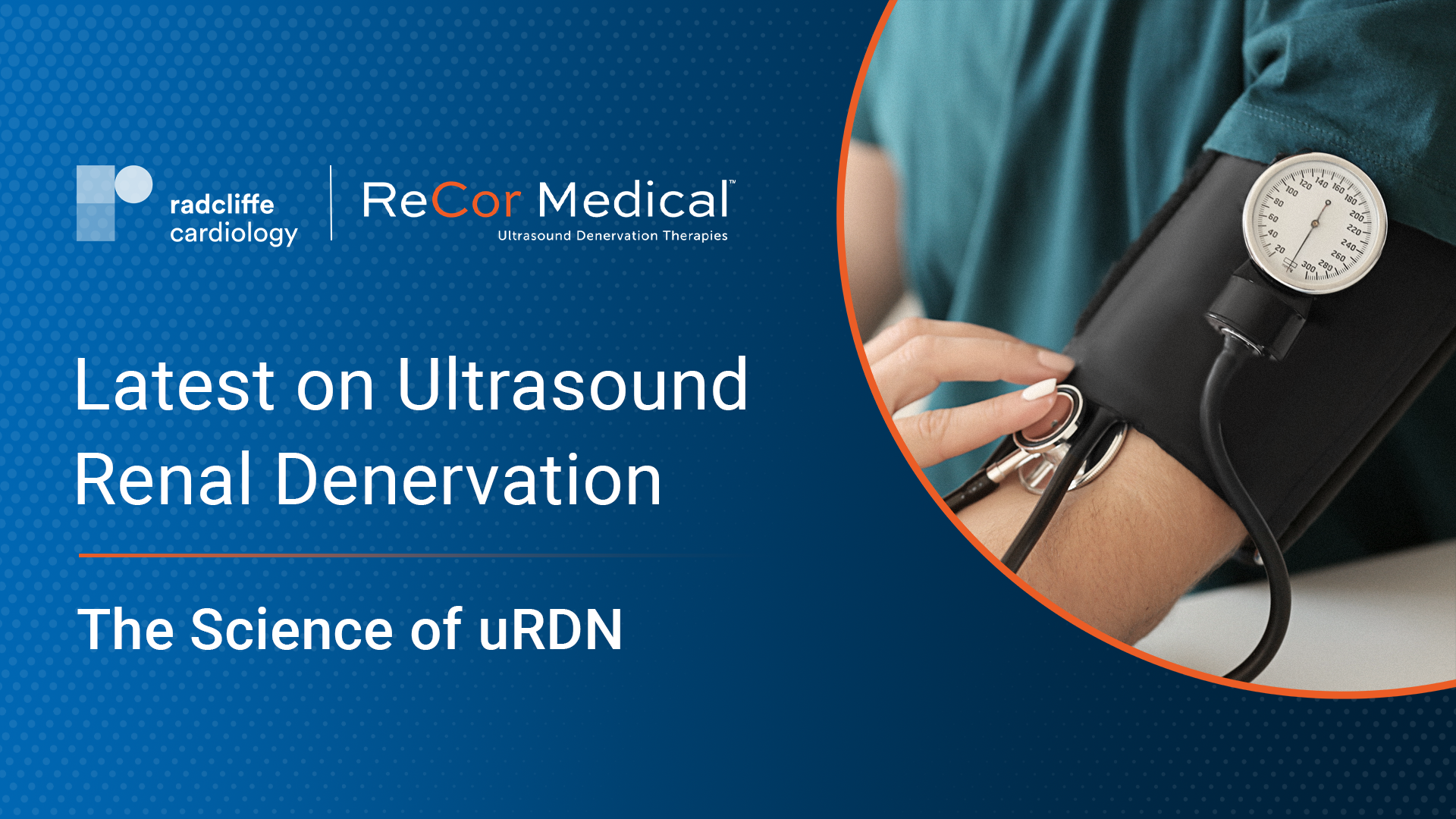 18m 36sPart 1 | Session 4 RDN Procedure with Ultrasound Technology: Prof Felix Mahfoud
18m 36sPart 1 | Session 4 RDN Procedure with Ultrasound Technology: Prof Felix Mahfoud -
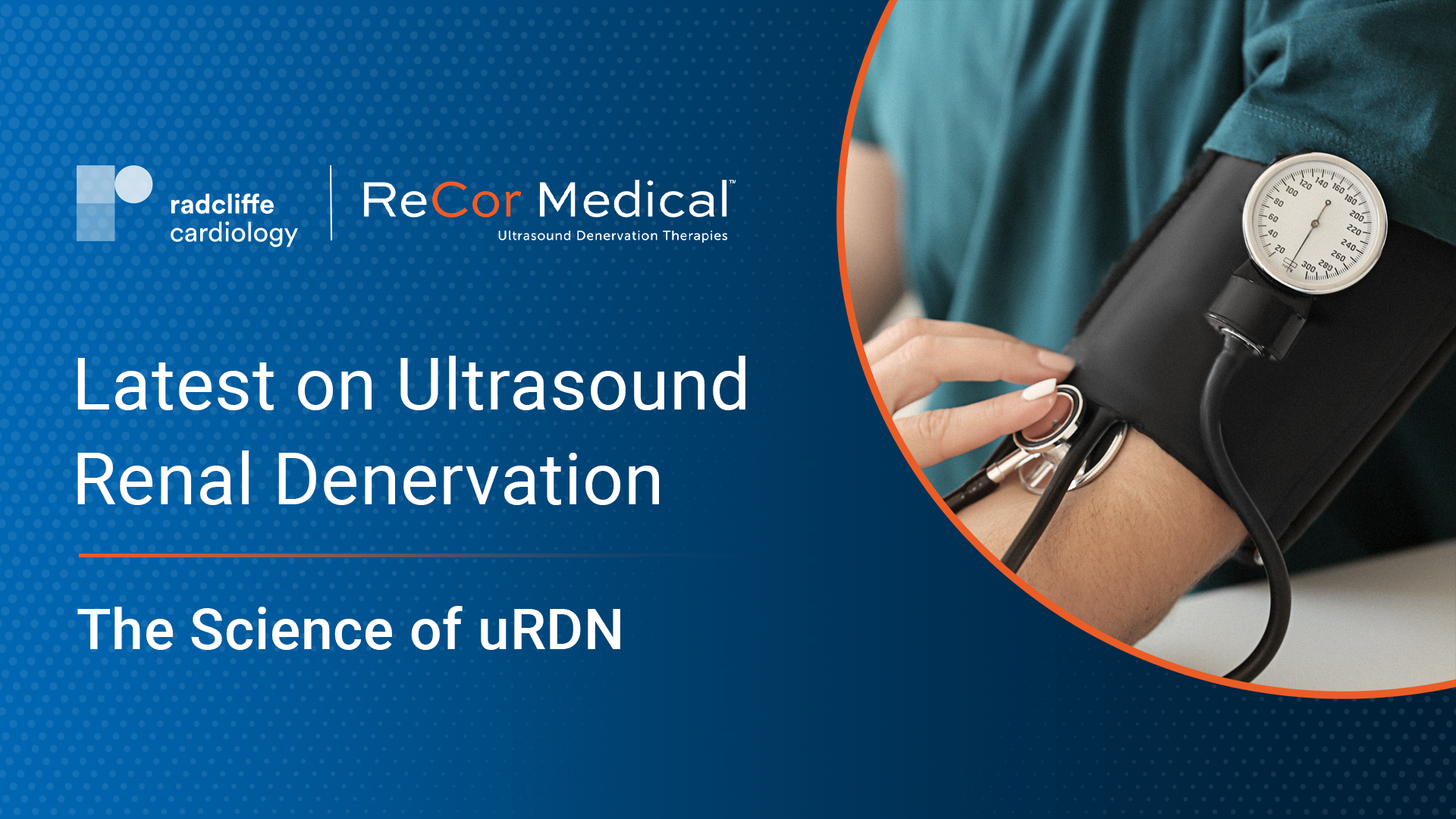 10m 14sPart 1 | Session 5 Panel Discussion: All
10m 14sPart 1 | Session 5 Panel Discussion: All
-
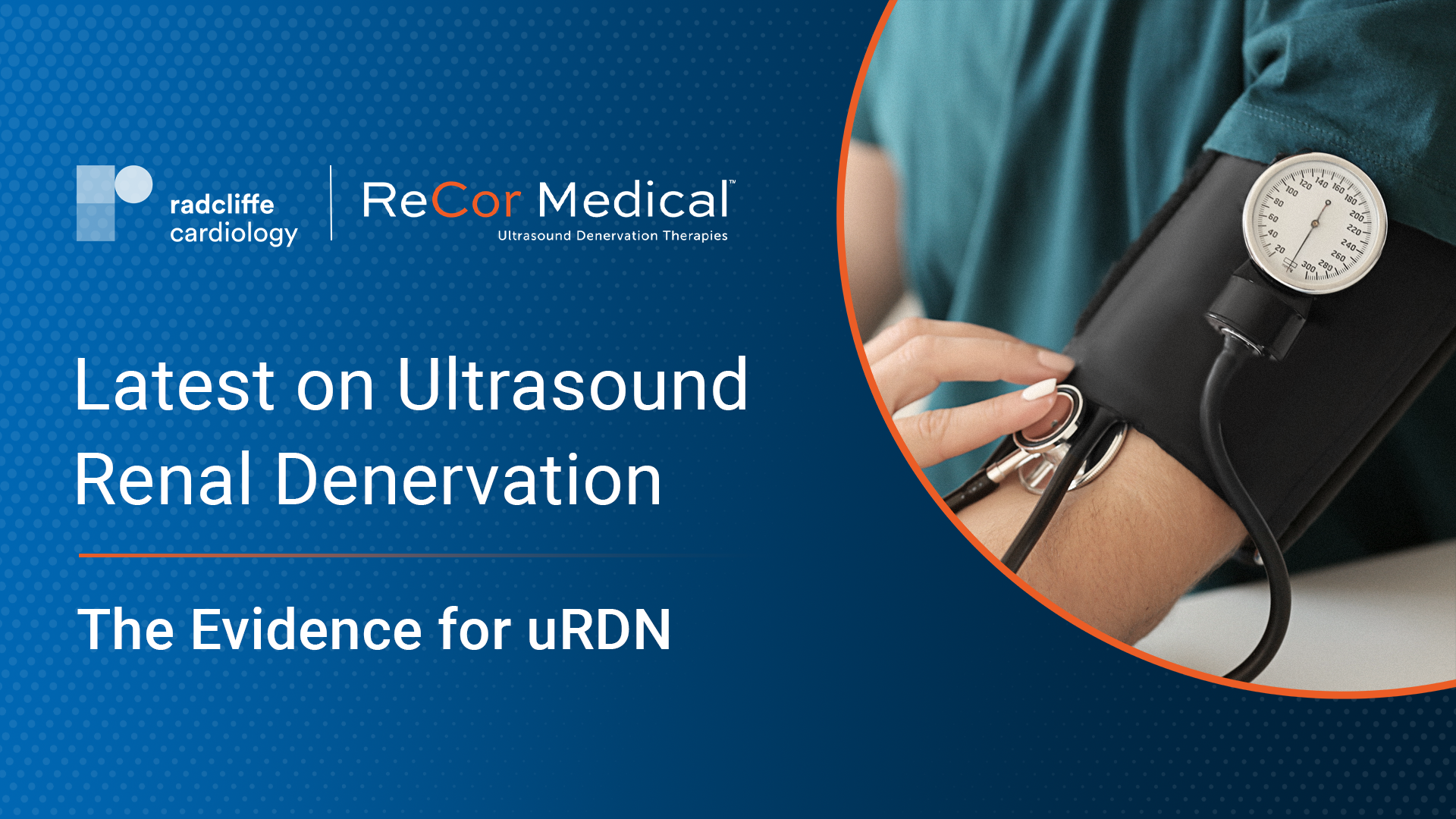 15m 15sPart 2 | Session 1 The Paradise uRDN System: Dr Andrew Sharp
15m 15sPart 2 | Session 1 The Paradise uRDN System: Dr Andrew Sharp -
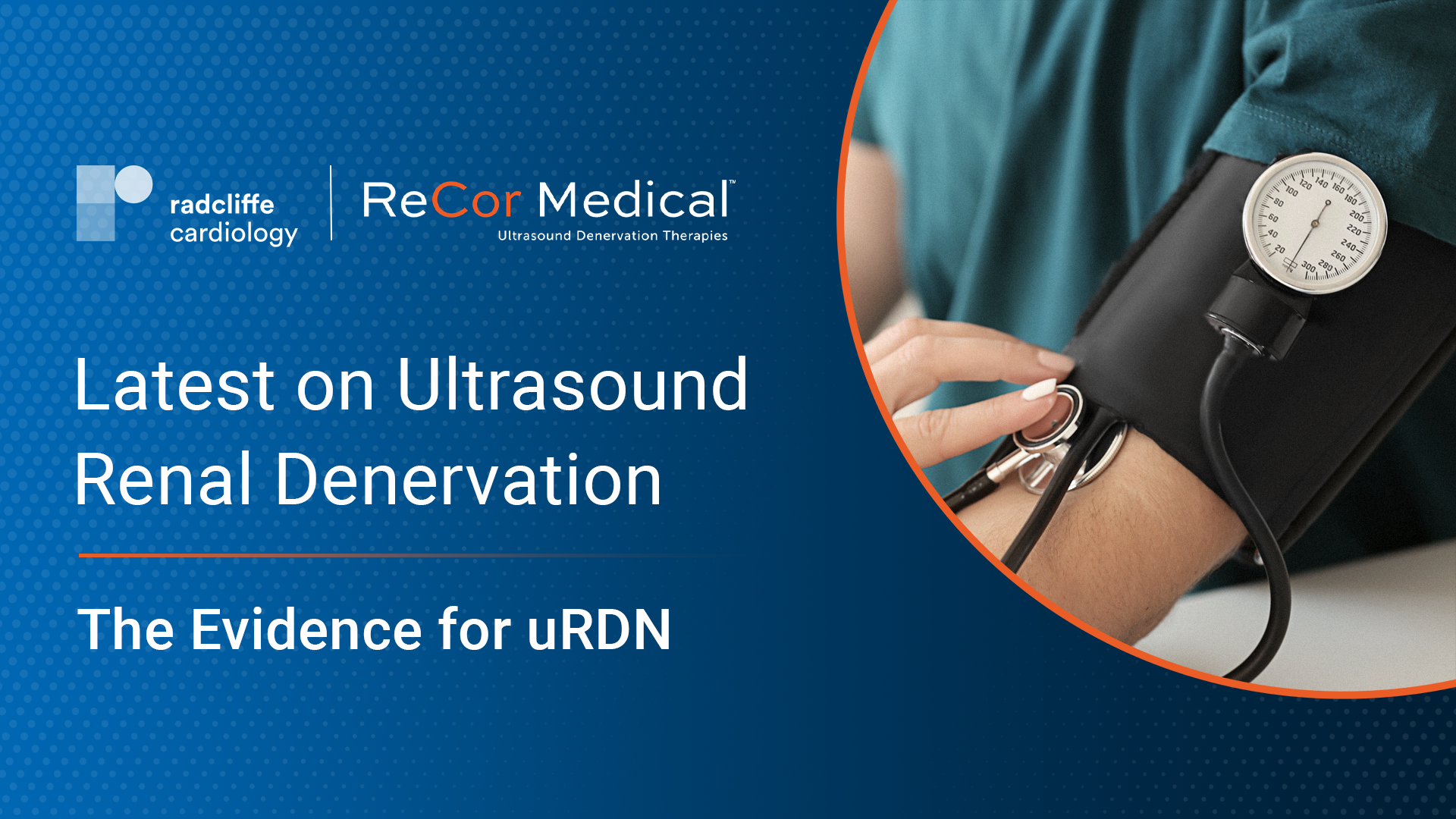 9m 57s
9m 57s -
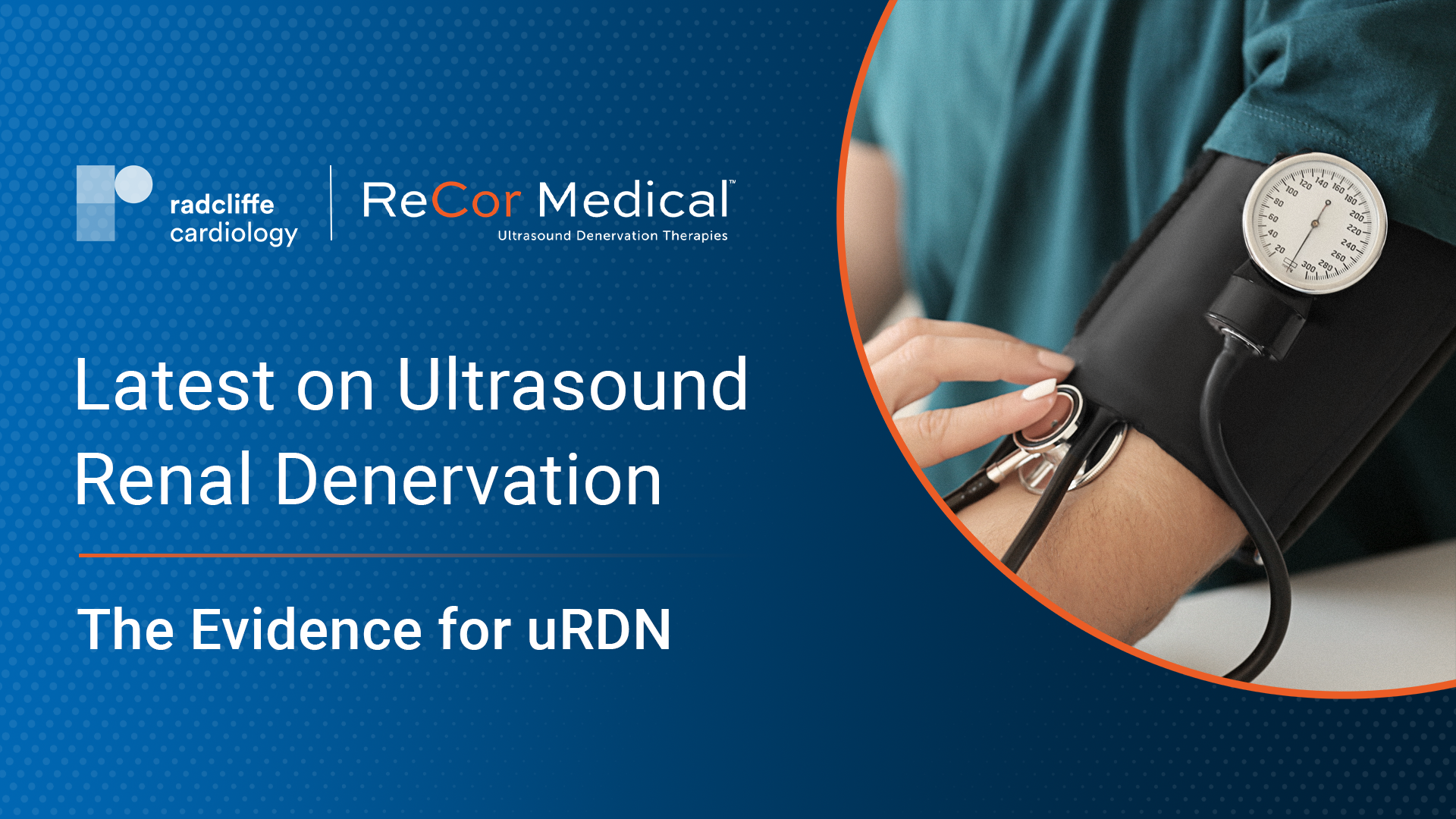 21m 53sPart 2 | Session 3 How to build uRDN centre / therapy pathway: Prof Roland Schmieder
21m 53sPart 2 | Session 3 How to build uRDN centre / therapy pathway: Prof Roland Schmieder
-
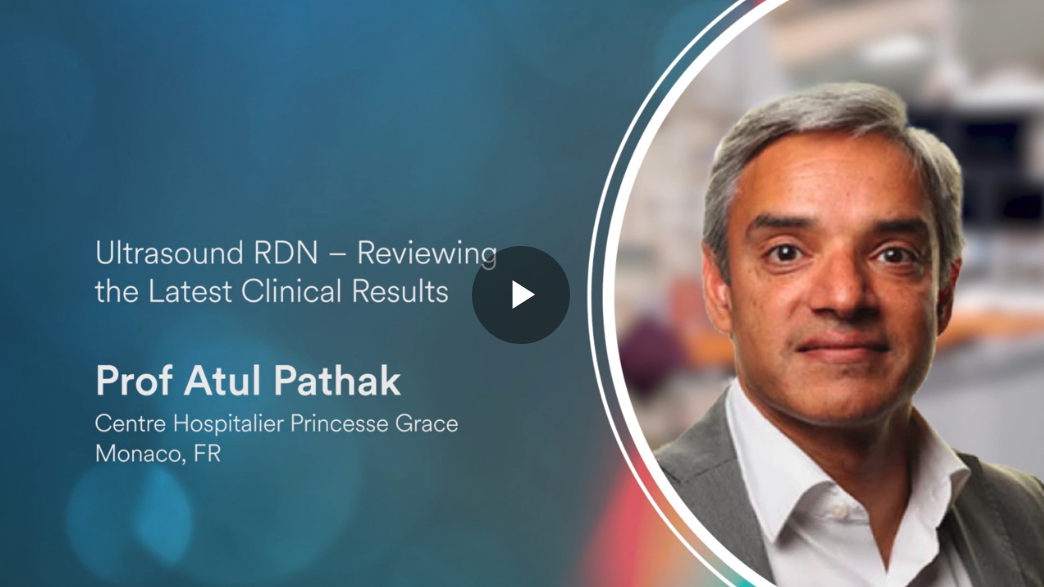 19m 35s
19m 35s -
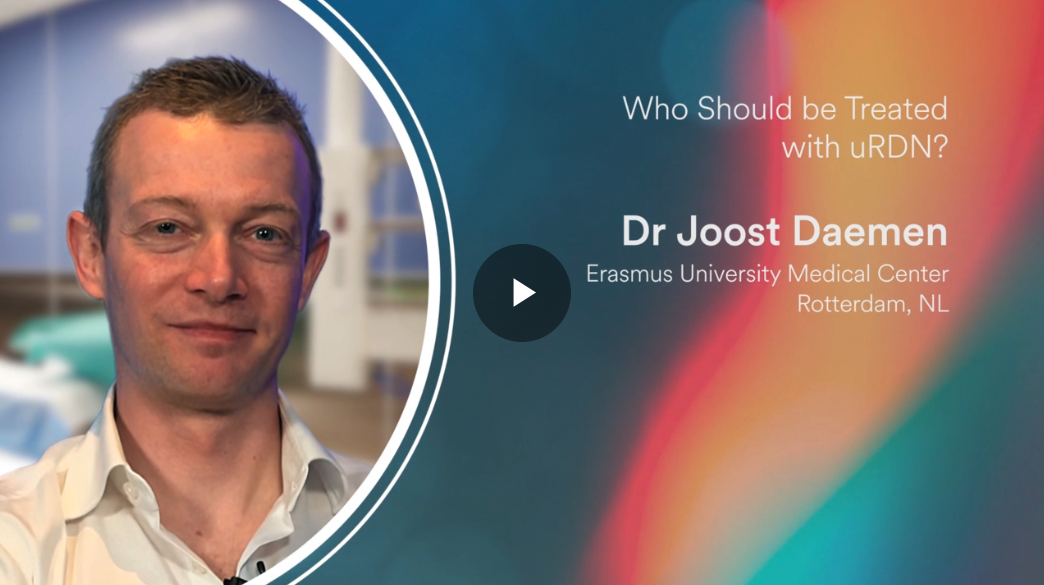 11m 41sPart 3 | Session 2 "Ultrasound RDN - Reviewing the Latest Clinical Results" : Joost Daemen
11m 41sPart 3 | Session 2 "Ultrasound RDN - Reviewing the Latest Clinical Results" : Joost Daemen -
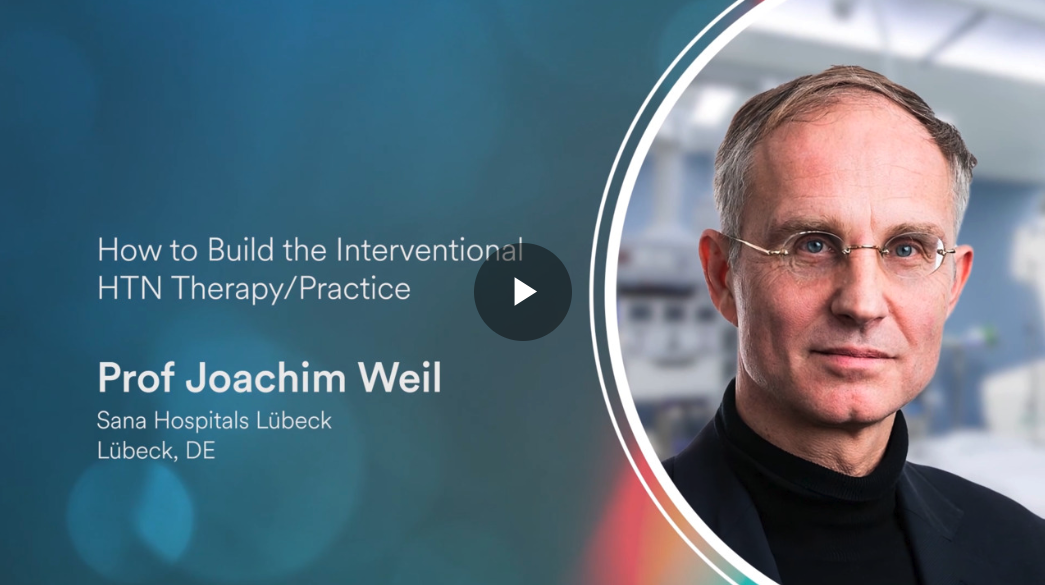 28m 37sPart 3 | Session 3 "How to build Interventional HTN Therapy/Practice": Joachim Weil
28m 37sPart 3 | Session 3 "How to build Interventional HTN Therapy/Practice": Joachim Weil
-
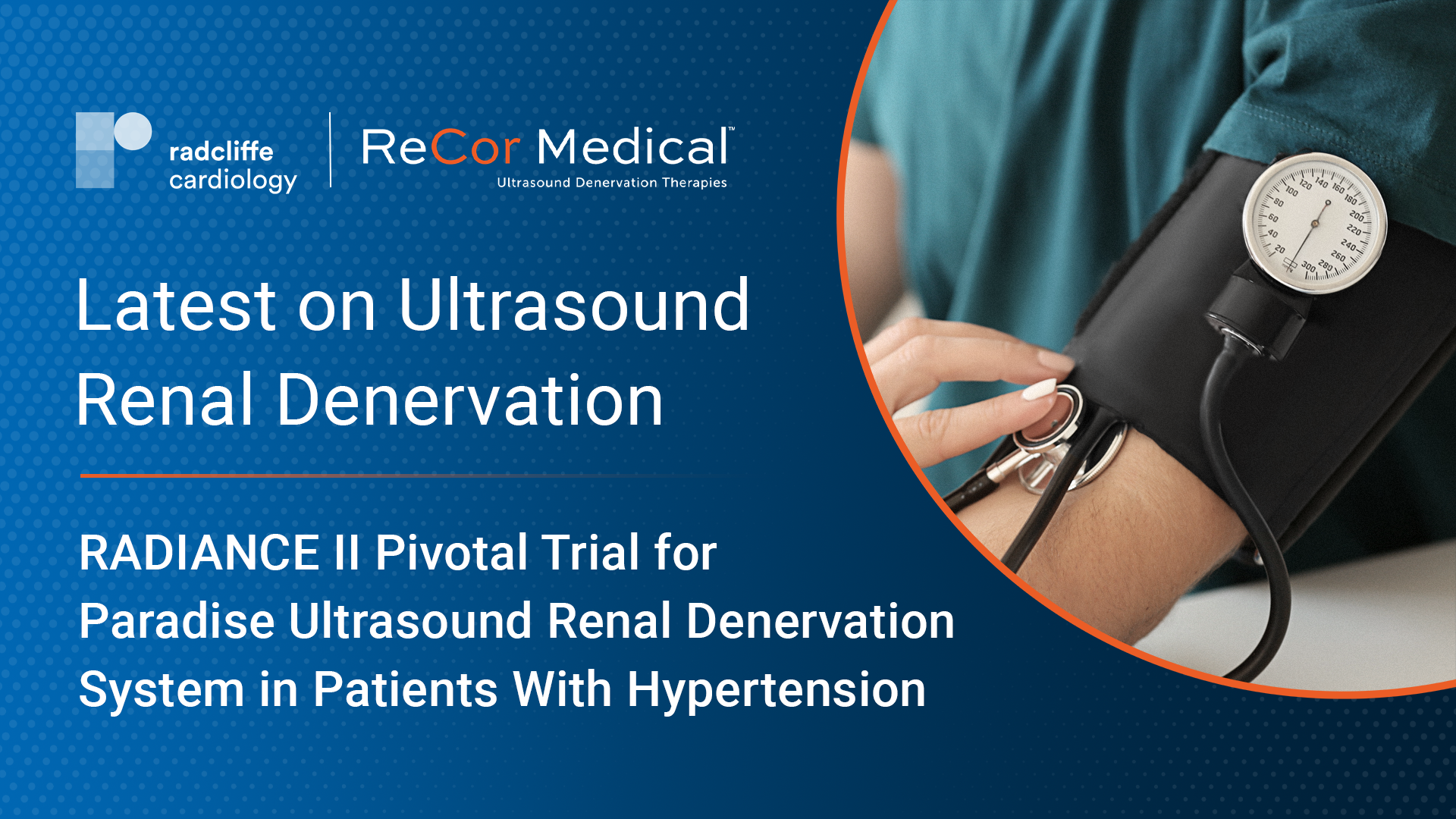 5m 12sPart 4 | Session 1 RADIANCE II Pivotal Trial
5m 12sPart 4 | Session 1 RADIANCE II Pivotal Trial -
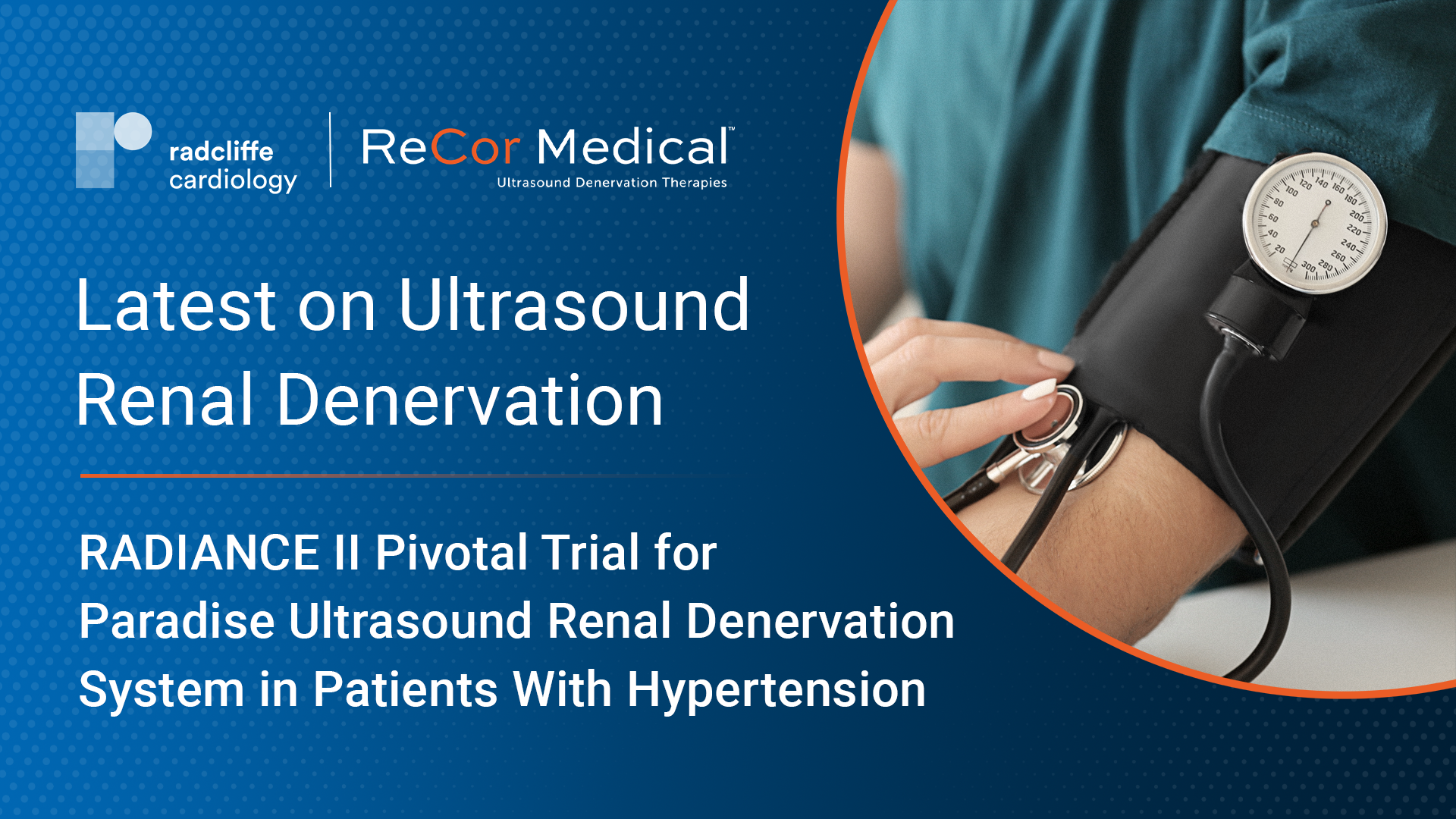 1h 20s
1h 20s
-
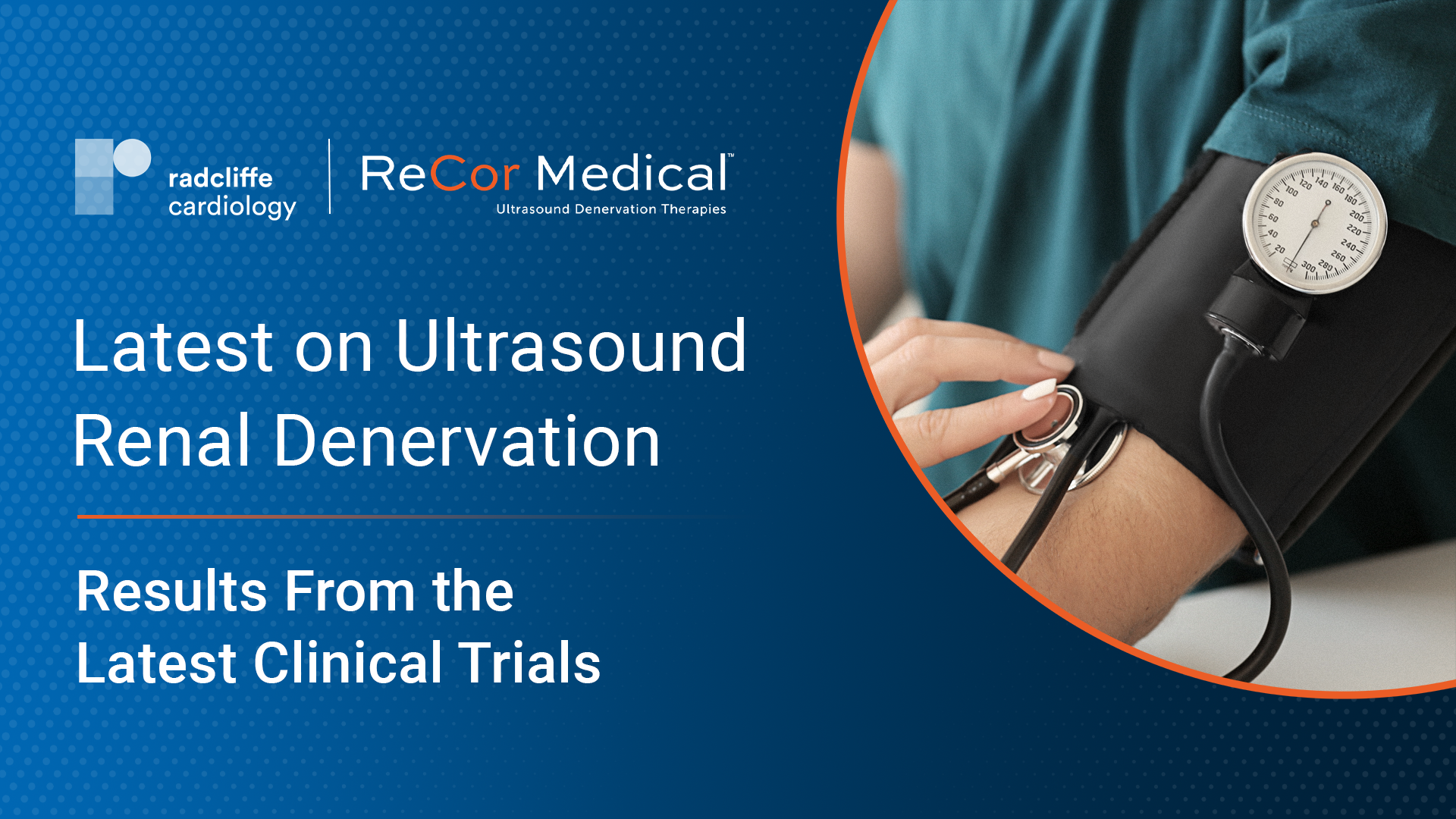 5m 10s
5m 10s -
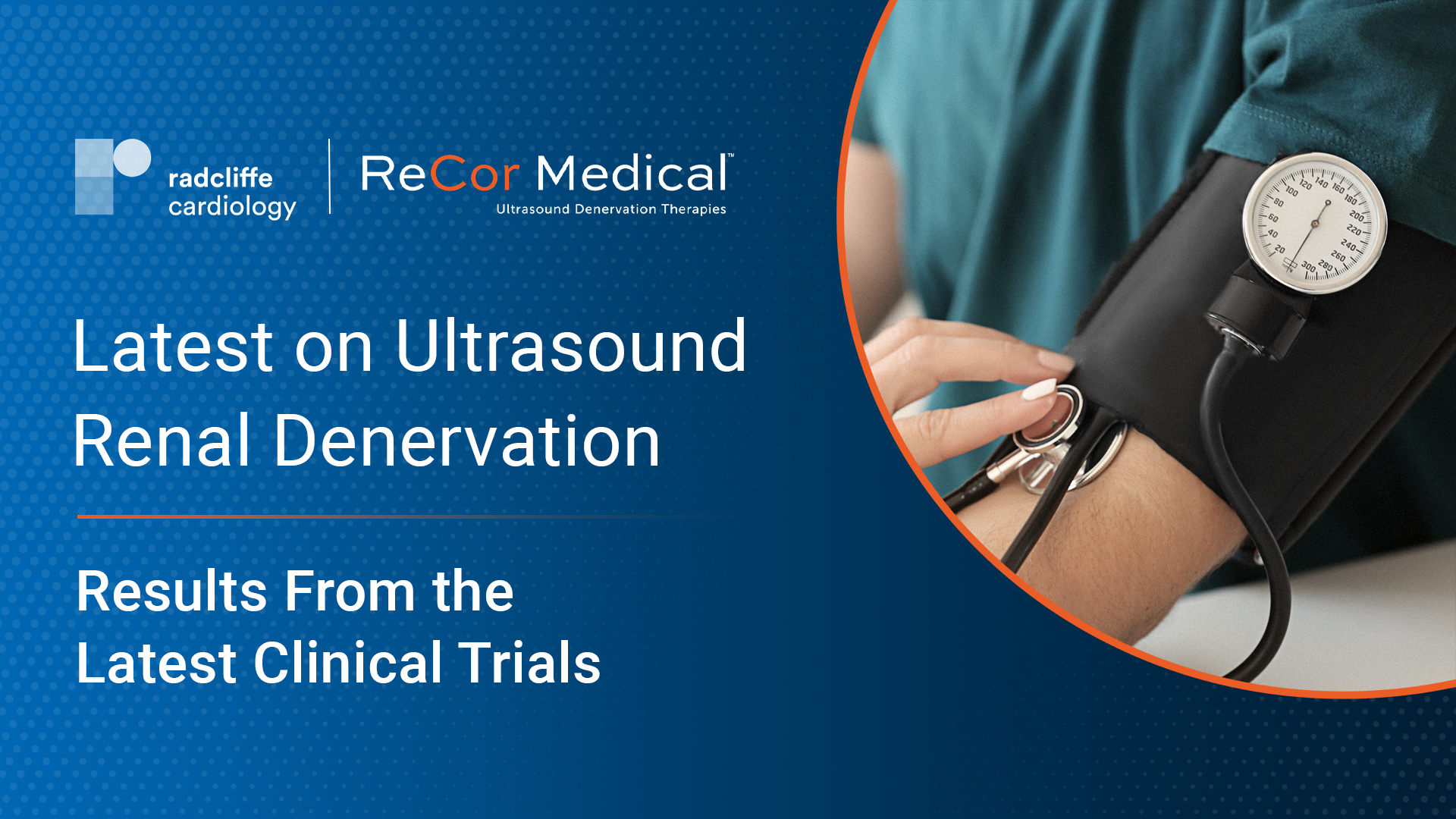 4m 44s
4m 44s -
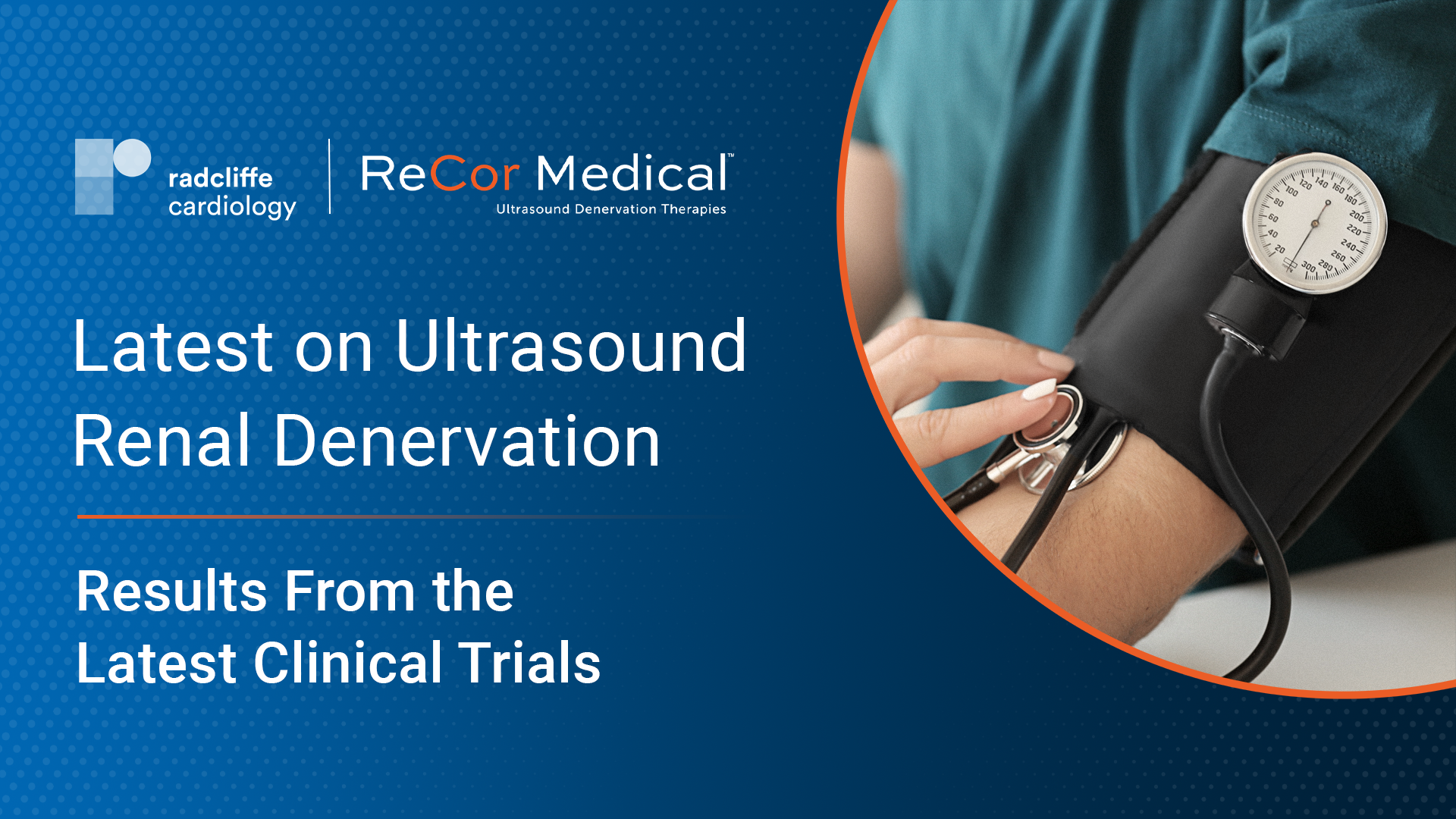 16m 20sPart 5 | Session 3 ACC 2021 – RADIANCE-HTN TRIO Trial Results with Ajay Kirtane
16m 20sPart 5 | Session 3 ACC 2021 – RADIANCE-HTN TRIO Trial Results with Ajay Kirtane -
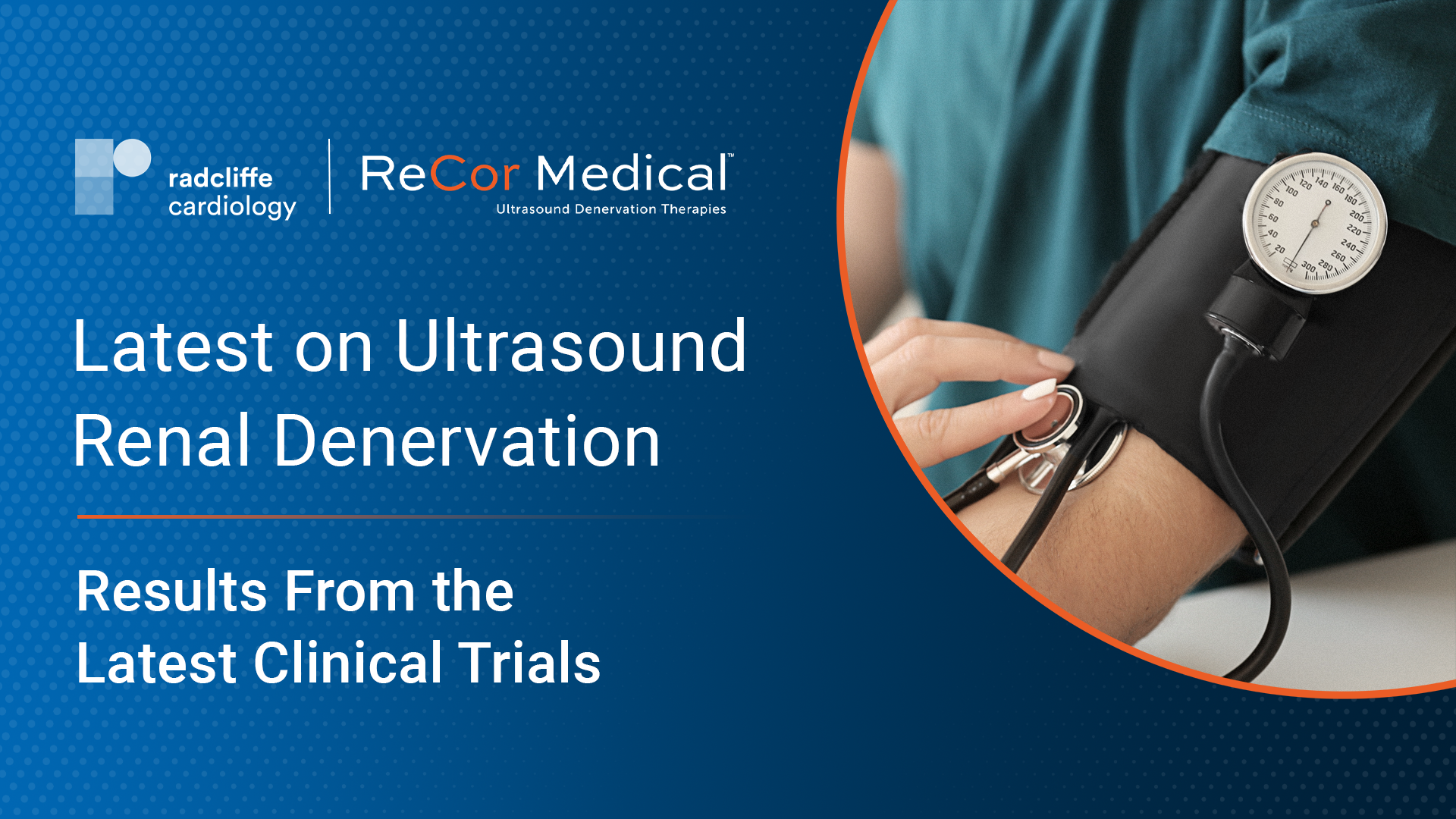 5m 47sPart 5 | Session 4 EuroPCR 2020 – Crossover Results From the RADIANCE-HTN SOLO Trial
5m 47sPart 5 | Session 4 EuroPCR 2020 – Crossover Results From the RADIANCE-HTN SOLO Trial
-
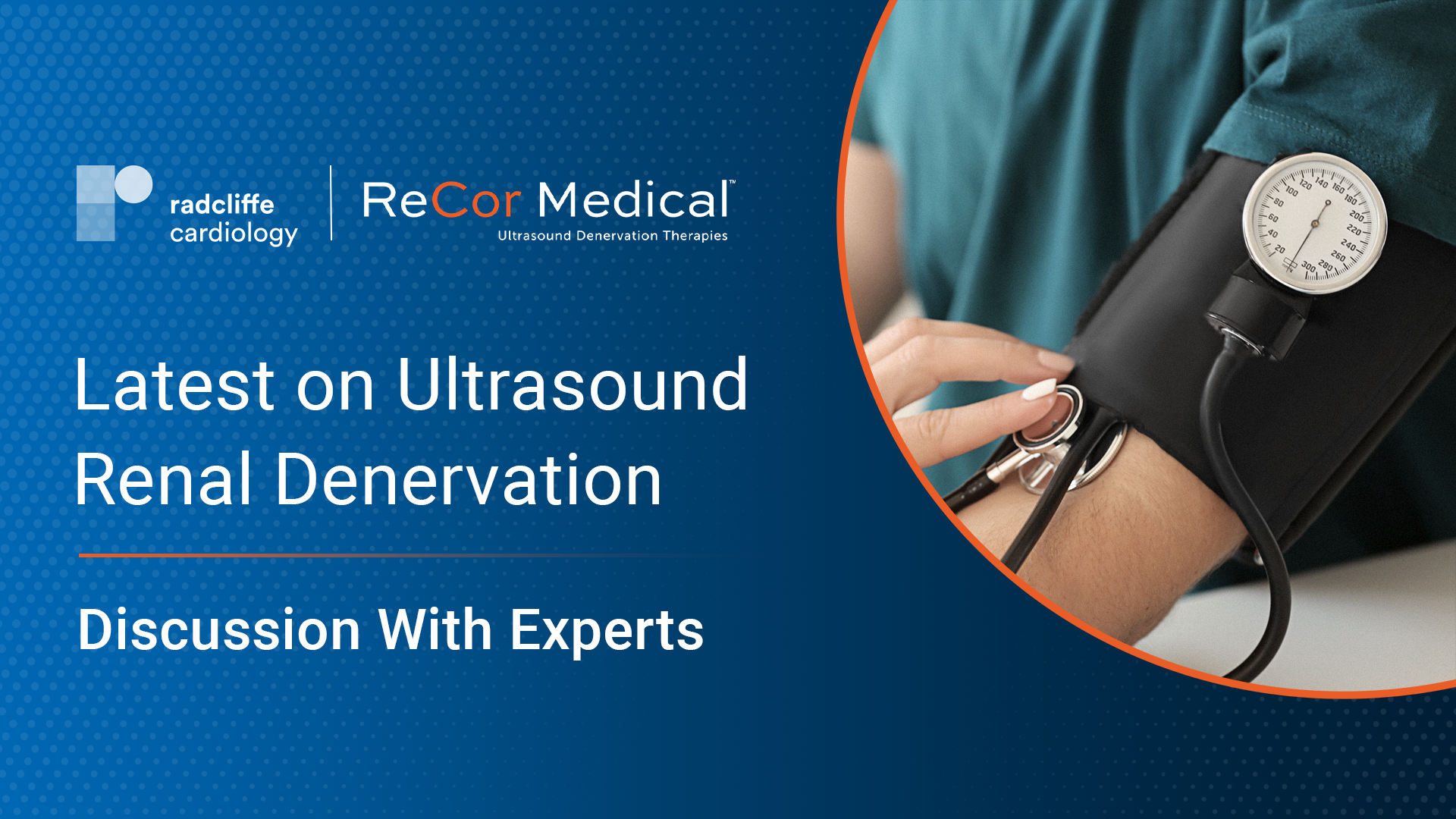 1h 4m 58sPart 7 | Session 1 ACC 2022 Symposium
1h 4m 58sPart 7 | Session 1 ACC 2022 Symposium -
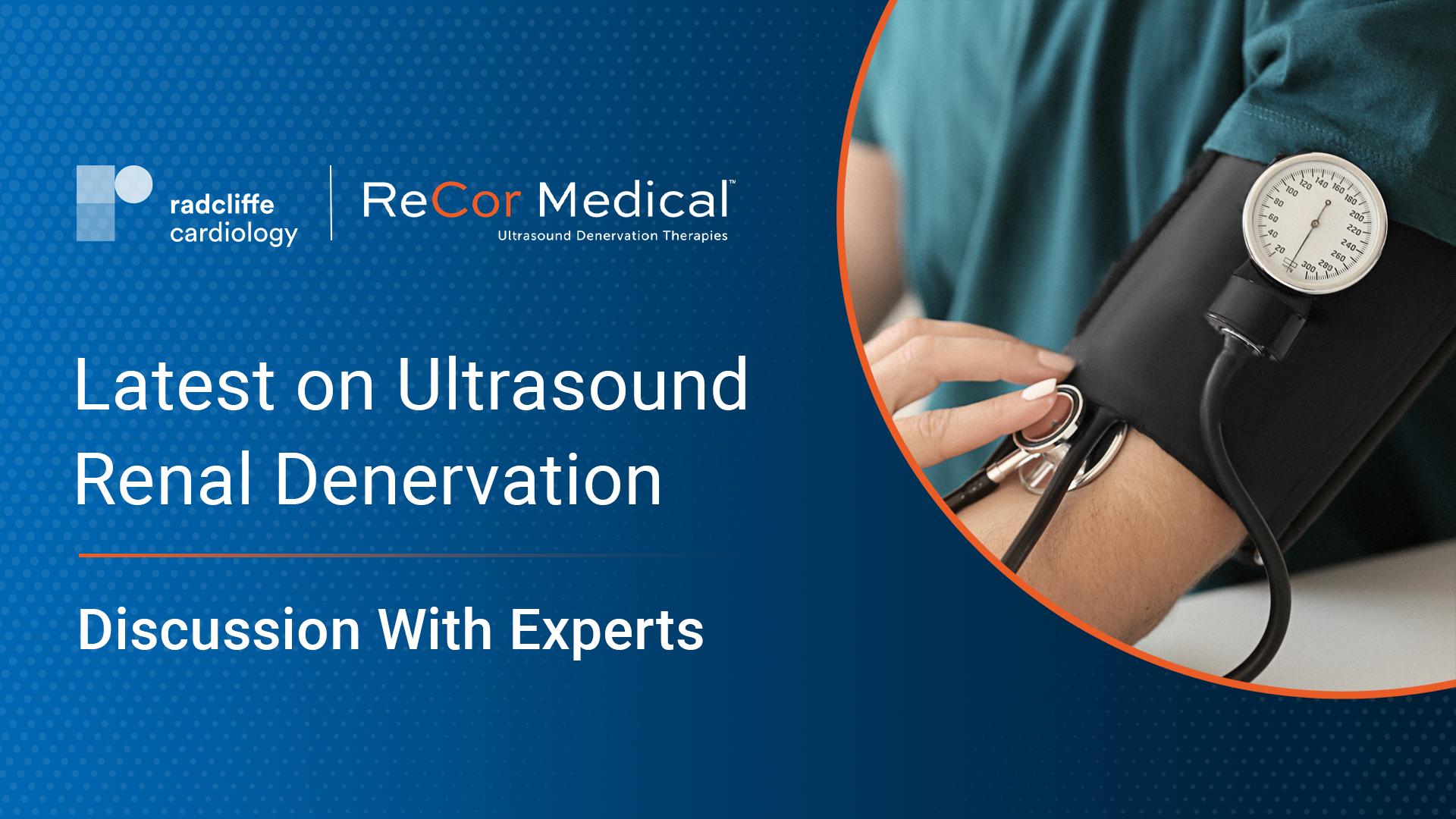 59m 32sPart 7 | Session 2 TCT 2021 Symposium
59m 32sPart 7 | Session 2 TCT 2021 Symposium
Overview
Ultrasound Renal Denervation (uRDN) is an innovative therapy option for the treatment of uncontrolled hypertension. uRDN therapy is delivered in a minimally invasive procedure that may lower high blood pressure by treating overactive renal nerves with ultrasound energy.
This page provides an overview of uRDN technology and the latest evidence from its associated RADIANCE clinical program.
The PARADISETM System is Limited to Investigational Use Only in the United States. Approved for distribution in CE mark countries only.

What you will learn:
- How uRDN works and its potential benefits for patients suffering from uncontrolled hypertension
- The clinical evidence supporting uRDN and its implications for the field of hypertension
- The process for building a uRDN centre and therapy network
This page is designed for:
- Interventional cardiologists
- General cardiologists
- Hypertension specialists
- Nephrologists
- Interventional radiologists
More from this programme
Part 1
The Science of uRDN
Part 2
The Evidence for uRDN
Part 3
From Proof to Practice – Treating Hypertension With uRDN
Part 4
RADIANCE II Pivotal Trial for Paradise Ultrasound Renal Denervation System in Patients With Hypertension
Part 5
Results From the Latest Clinical Trials
Part 6
Patient Perspective & Provider Referral Development
Part 7
Discussion With Experts
| 2 sessions | |
| ACC 2022 Symposium | Watch now |
| TCT 2021 Symposium | Watch now |
Faculty Biographies
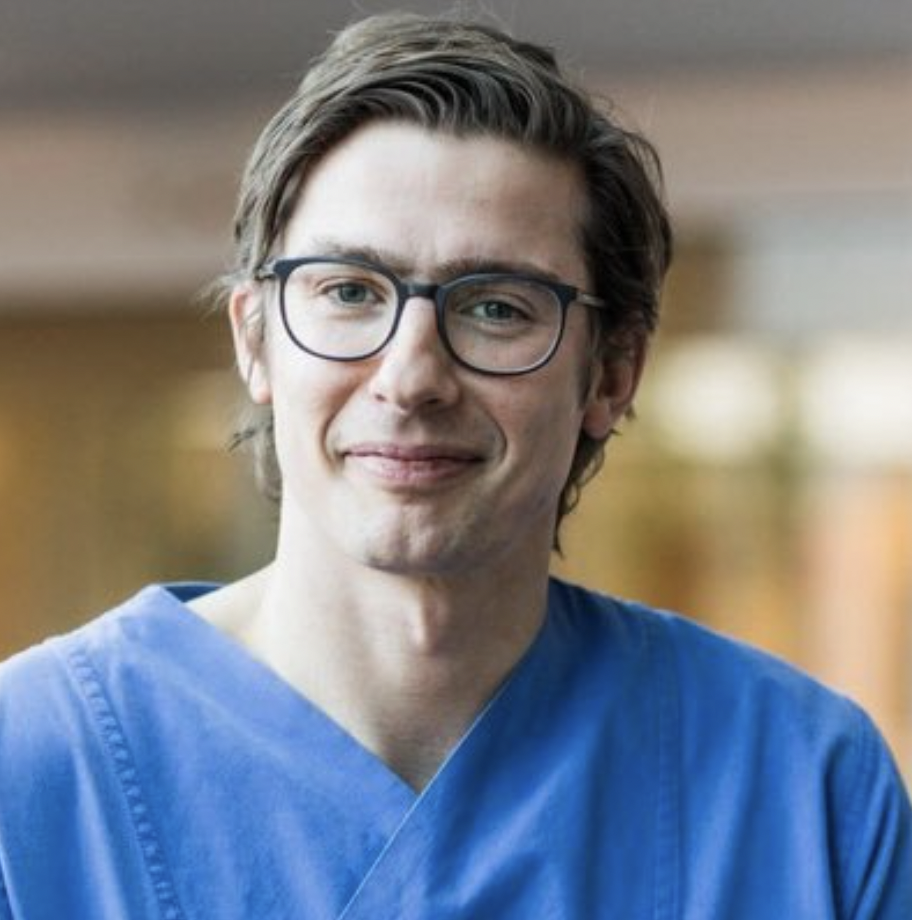
Philipp Lurz
University Medical Center Mainz, Mainz, Germany
Prof Philipp Lurz is Director of the Department of Cardiology Universitätsmedizin Mainz, Germany. Prior to this, he served as Deputy Head of the Department at Heart Center Leipzig, Germany. Previously, Prof Lurz was a Clinical Research Fellow at Great Ormond Street Hospital for Children NHS Foundation Trust. He completed his education at the University of Leipzig, and is a member of the German Society of Cardiology. Philipp is widely published in leading international peer-reviewed journals.
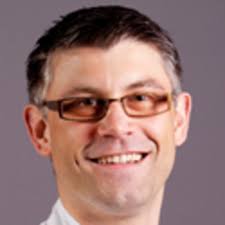
Michael Joner
Head of the Preclinical Research
Dr Michael Joner MD completed his medical training at the University of Wuerzburg and spent 2004-2006 as a cardiovascular pathology fellow at the CVPath Institute.
After returning to Germany, since 2007 Dr Joner has been Head of the Preclinical Research at the German Heart Centre in Munich, where he also completed his interventional cardiology residency.
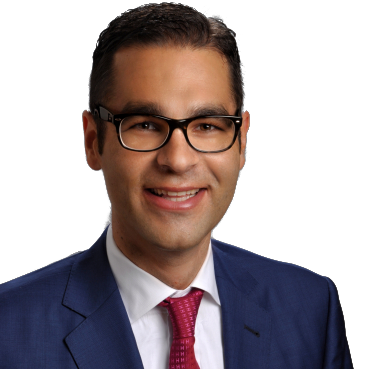
Felix Mahfoud
Professor of Cardiology and Chairman of the Department of Cardiology
Prof Felix Mahfoud is a Professor of Cardiology at the University of Basel and the Chairman of the Department of Cardiology at University Hospital Basel, Switzerland. He also holds a position as Visiting Professor at Harvard-MIT, Biomedical Engineering in Boston, MA.
Prof Mahfoud is board-certified in internal medicine, cardiology, intensive care medicine, emergency medicine and hypertension. He is Deputy Editor of the European Journal of Heart Failure and is a Councillor on the Board of the European Society of Cardiology (ESC) for 2024-2026. Additionally, he chairs both the ESC Communication Committee and the Scientific Documents Committee of the EAPCI for the 2024-2026 term.
He has published more than 500 publications in peer-reviewed journals and contributed as a wiring committee member to the 2019 ESC Guidelines for the…

Andrew Wu
Former Vice President, Research & Development, ReCor Medical
Mr Wu has over 20 years of experience in medical device product development. He has worked on devices in the fields of interventional cardiology, electrophysiology, pulmonology, and women’s health, and has taken a number of them from early concept phase through clinical or commercial launch.






